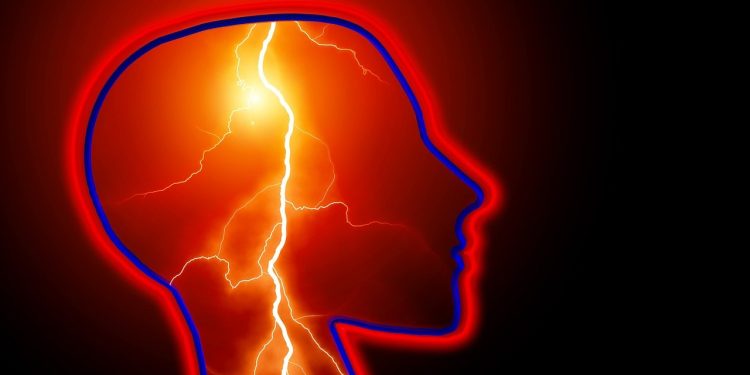Testosterone is often associated with masculinity—it’s the hormone that plays a key role in developing male characteristics like muscle mass, facial hair, and a deeper voice. However, testosterone is much more than just a symbol of virility. It’s a crucial hormone that impacts many aspects of a man’s overall health, including physical, mental, and sexual well-being. Understanding testosterone, how it affects the body, and what to do when levels are out of balance is vital for men of all ages who want to stay healthy, energetic, and strong.
What Is Testosterone?
Testosterone is a hormone primarily produced in the testicles, with small amounts also produced by the adrenal glands. It belongs to a group of hormones known as androgens, which are responsible for male traits and reproductive activity. Testosterone is essential not only for sexual health and reproductive function but also for maintaining muscle mass, bone density, and emotional balance.
During puberty, testosterone levels surge, driving changes like increased muscle mass, the growth of body hair, and the deepening of the voice. After puberty, testosterone levels play a critical role in maintaining these characteristics, as well as influencing mood, energy, and even cognitive abilities. As men age, testosterone levels naturally decline, which can affect health in numerous ways.
The Importance of Testosterone for Physical Health
Testosterone has a direct impact on physical health in several ways. It is a key factor in muscle growth and maintenance, which is why men with lower testosterone levels often experience muscle wasting or difficulty in building strength. Testosterone supports protein synthesis, which is the process the body uses to repair and grow muscles. This is why weight training and regular physical activity can help boost testosterone levels—exercise stimulates the production of this important hormone.
Bone health is another crucial area influenced by testosterone. Adequate levels of testosterone help maintain bone density, reducing the risk of fractures and osteoporosis as men age. Low testosterone levels have been linked to a reduction in bone mass, which can increase the risk of injuries, particularly for older men.
Testosterone also plays a significant role in fat distribution. Men with low testosterone are more prone to gaining body fat, particularly around the abdomen. This type of fat, known as visceral fat, is particularly harmful and has been linked to an increased risk of cardiovascular disease, type 2 diabetes, and other metabolic issues. Maintaining healthy testosterone levels helps with a more balanced fat distribution and reduces the risk of these chronic conditions.
Sexual Health and Testosterone
One of the most well-known roles of testosterone is its effect on sexual health. Testosterone is essential for libido (sex drive) and plays a key role in sperm production. Men with low testosterone levels may experience a reduced sex drive, difficulty achieving or maintaining erections, and even infertility due to a decrease in sperm count.
Erectile dysfunction (ED) can be a particularly sensitive issue for men, and while it often has multiple causes—including vascular health and psychological factors—low testosterone is frequently part of the problem. Low levels of testosterone can reduce the frequency of spontaneous erections, such as those that occur during sleep. It is important to note that while testosterone is critical for sexual health, it is not the only factor at play; cardiovascular health, mental health, and other hormonal levels also contribute to overall sexual function.
Mental Health and Emotional Well-being
Testosterone doesn’t just affect physical health; it also has a profound impact on mental well-being. Men with low testosterone often report symptoms such as fatigue, irritability, and even depression. The relationship between testosterone and mood is complex—testosterone can affect neurotransmitters in the brain, such as serotonin, which play a significant role in regulating mood.
Low testosterone levels can also lead to cognitive changes. Men may experience difficulty concentrating, memory issues, or general mental fogginess. Conversely, maintaining healthy testosterone levels has been linked to better cognitive performance and a lower risk of developing conditions like Alzheimer’s disease.
The emotional impact of declining testosterone levels should not be underestimated. Men often tie their sense of vitality, motivation, and masculinity to this hormone. When levels decline, it can lead to a loss of confidence, reduced enthusiasm for activities, and a diminished sense of overall well-being. Recognizing these symptoms and seeking appropriate intervention can have a significant impact on improving quality of life.
Factors That Affect Testosterone Levels
Testosterone levels naturally fluctuate throughout a man’s life, peaking during adolescence and early adulthood, and then gradually declining with age. However, certain lifestyle factors can significantly impact testosterone levels, either positively or negatively.
- Diet: Poor nutrition, particularly diets high in processed foods, trans fats, and refined sugars, can lower testosterone levels. Conversely, diets rich in healthy fats (such as those found in avocados, nuts, and olive oil), lean proteins, and antioxidant-rich fruits and vegetables can support optimal testosterone production.
- Exercise: Physical activity plays a crucial role in maintaining healthy testosterone levels. Resistance training, in particular, has been shown to increase testosterone production. High-intensity interval training (HIIT) is another effective method for boosting testosterone.
- Sleep: Quality sleep is essential for hormone regulation, including testosterone. Most testosterone production occurs during sleep, particularly in the deep sleep stages. Chronic sleep deprivation can significantly reduce testosterone levels, leading to a host of health issues.
- Stress: Chronic stress leads to elevated levels of cortisol, a hormone that can suppress testosterone production. Stress management techniques, such as meditation, deep breathing exercises, or engaging in hobbies, can help reduce cortisol levels and support healthy testosterone production.
Recognizing Low Testosterone Symptoms
Low testosterone, also known as hypogonadism, can manifest in a variety of symptoms, some of which may be subtle. Recognizing these signs can help men take proactive steps toward addressing any deficiencies:
- Fatigue and Low Energy: Men with low testosterone may feel tired even after adequate sleep or find it difficult to sustain energy throughout the day.
- Reduced Libido: A noticeable decrease in sexual desire is one of the most common symptoms of low testosterone.
- Mood Changes: Depression, irritability, and increased anxiety can all be linked to lower testosterone levels.
- Difficulty Concentrating: Mental fog, forgetfulness, and difficulty focusing on tasks may indicate a deficiency.
- Loss of Muscle Mass: Difficulty gaining muscle, or an unexplained loss of muscle mass, could also be a sign of reduced testosterone.
If any of these symptoms are persistent, it’s important to seek medical advice. A simple blood test can determine testosterone levels and help diagnose whether there is an issue that needs to be addressed.
Boosting Testosterone Levels Naturally
While there are medical treatments available for low testosterone, there are also several natural ways to support healthy testosterone production:
- Maintain a Balanced Diet: Prioritize whole foods that include healthy fats, lean proteins, and a variety of fruits and vegetables. Foods such as eggs, fatty fish, and leafy greens are known to support testosterone production.
- Exercise Regularly: Include both resistance training and cardiovascular workouts in your routine to optimize testosterone levels. Weightlifting and HIIT workouts are particularly effective.
- Get Quality Sleep: Aim for 7-9 hours of quality sleep per night. Establish a bedtime routine, minimize screen time before bed, and create a comfortable sleep environment.
- Manage Stress: Chronic stress is detrimental to testosterone levels. Practice stress-reducing techniques such as mindfulness, meditation, or spending time in nature to keep cortisol levels in check.
- Maintain a Healthy Weight: Excess body fat, especially around the abdomen, is associated with lower testosterone levels. A healthy diet and regular exercise can help reduce excess fat and support hormone balance.
Medical Interventions for Low Testosterone
For some men, lifestyle changes alone may not be enough to restore healthy testosterone levels. In these cases, medical interventions, such as testosterone replacement therapy (TRT), may be recommended. TRT involves supplementing testosterone through injections, patches, gels, or pellets implanted under the skin.
While TRT can be effective for improving energy, mood, and overall quality of life, it is not without risks. Potential side effects include an increased risk of blood clots, sleep apnea, and an elevated risk of certain cardiovascular issues. It’s crucial for men considering TRT to discuss the potential benefits and risks with a healthcare provider and have ongoing monitoring throughout the treatment process.
The Bottom Line: Prioritizing Testosterone Health
Testosterone plays an essential role in a man’s life, influencing physical strength, sexual health, mental clarity, and emotional balance. While it’s natural for testosterone levels to decline with age, lifestyle choices can have a significant impact on maintaining healthy levels and reducing the risks associated with low testosterone.
By prioritizing a balanced diet, regular exercise, quality sleep, and effective stress management, men can support their bodies in maintaining optimal testosterone levels. Recognizing the symptoms of low testosterone and seeking appropriate medical advice can also lead to timely interventions that help preserve health and quality of life. Testosterone is more than just a hormone for physical development—it’s a cornerstone of a man’s well-being that deserves attention and care throughout all stages of life.






